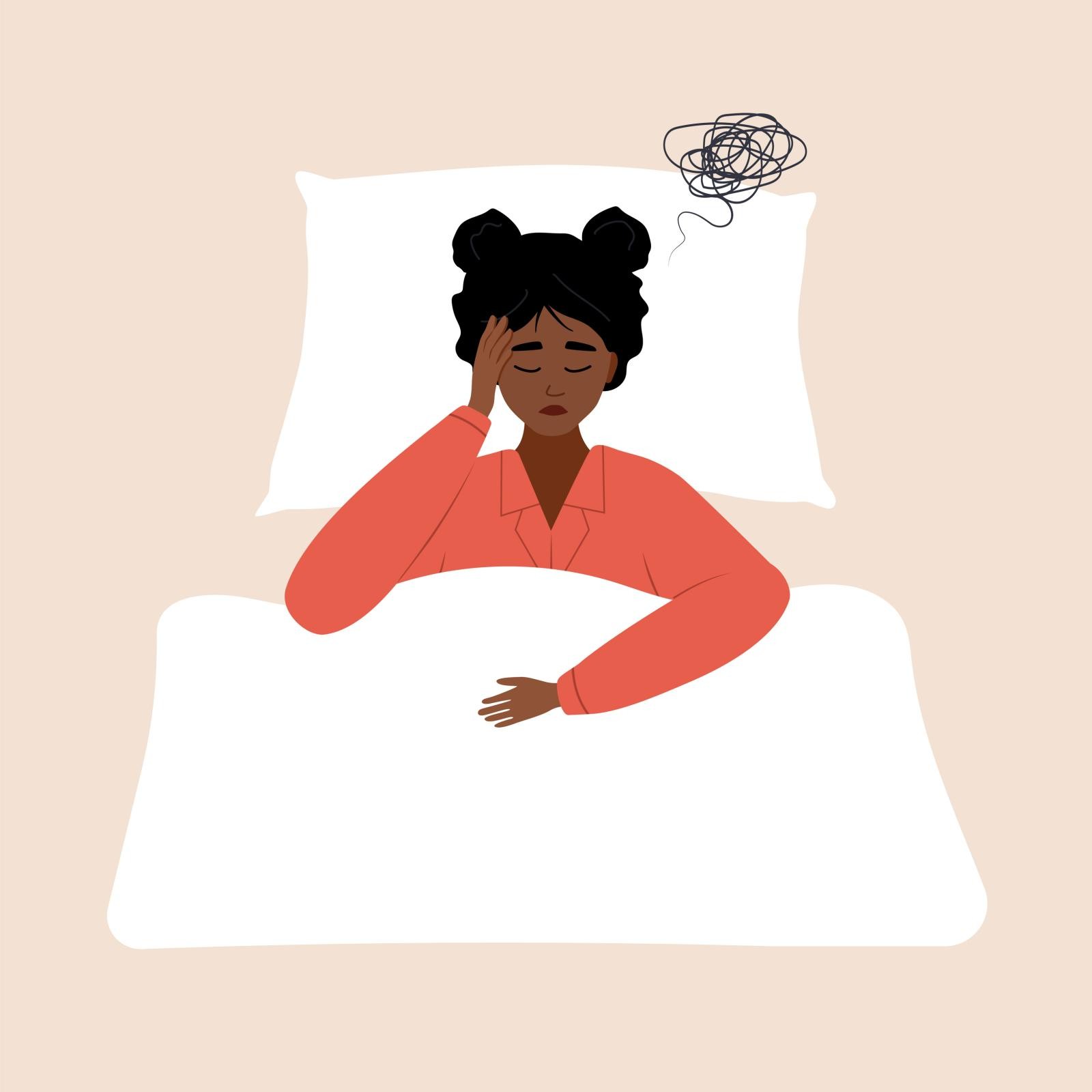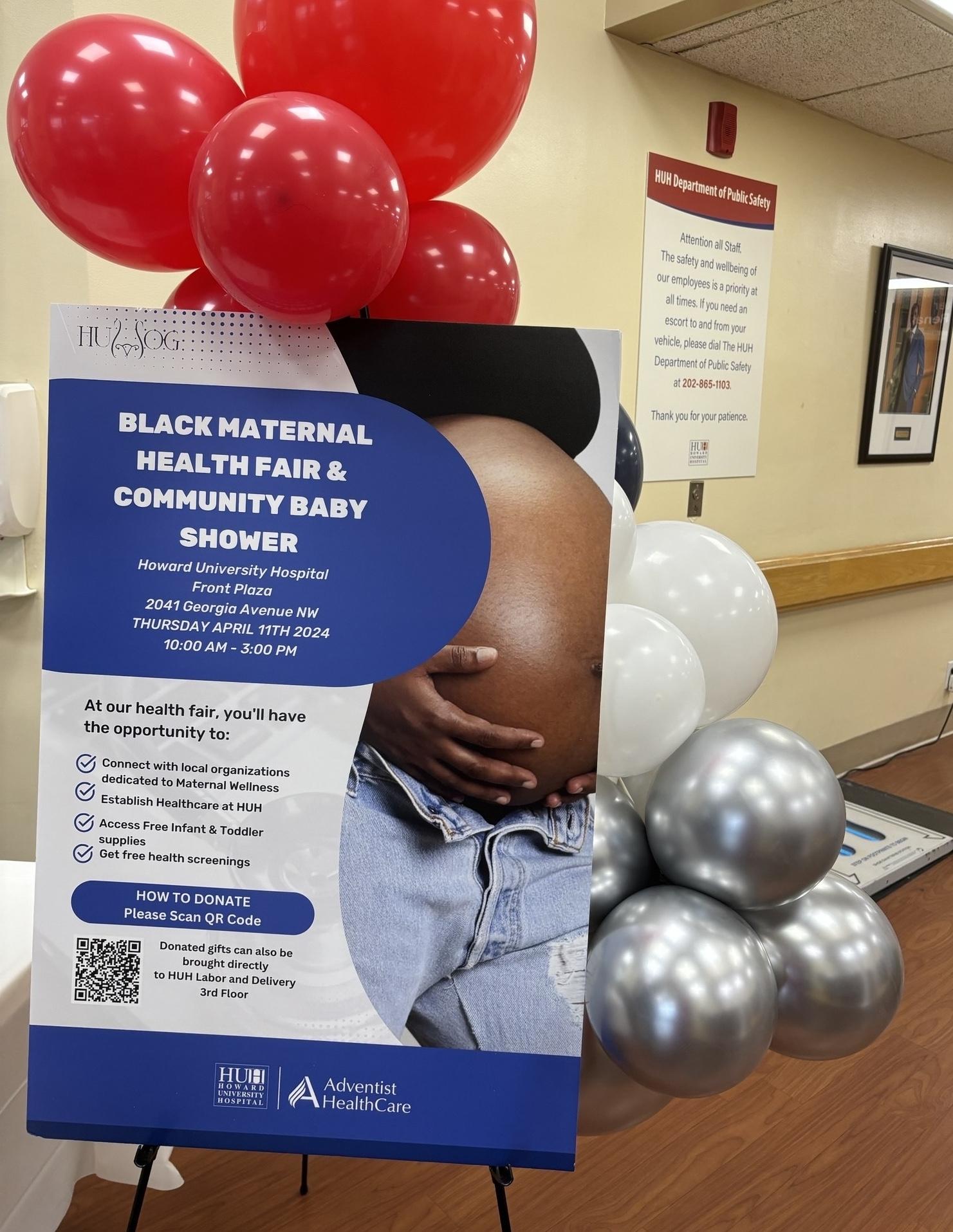When Rochanda Mitchell, DO, became pregnant in 2019, she was excited but also feared for her life. Mitchell says, “I was scared to birth a child.”
Despite her expertise as a maternal and fetal medicine physician who works with high risk and complicated pregnancies at Howard University Hospital, she knew that pregnancy, childbirth, and the period after delivering a baby were more dangerous for her because she is Black. Based on the data, she was at a much higher risk for serious complications and even death. “The current state of Black maternal health is at epidemic proportions,” she notes.
Her instincts about her own pregnancy were correct – while her pregnancy was smooth, her delivery was not. “I was not fortunate enough to escape the crunch of the maternal morbidity in America,” she remarks. She recovered in the hospital for a week due to complications. Today, her son is four years old.
However, many Black women are not so lucky. Throughout the country, Black people continue to fare worse when it comes to maternal health regardless of their status or education level. In the U.S., Black women are three times more likely to die from complications related to their pregnancy than white women. These deaths occur before, during, and the period after childbirth.
More than 80% of all maternal deaths are preventable, according to the most recent data from the Centers for Disease Control and Prevention. Black people were found to be 53% more likely to die while in the hospital during childbirth in a 2022 study. While statistics have shown that expectant Black women in other developed nations, including the United Kingdom and Australia, are also at three times higher risk of death than expectant white women, the rate is increasing for Black people only in the United States.
In fact, 30% of Black, Hispanic and multiracial mothers say they experienced mistreatment, including verbal abuse and 40% say they experienced discrimination during their maternity care.
3 Times
Likelihood of Black women to die from complications related to their pregnancy than white women.
-
53% Likelihood of Black women to die in the hospital during childbirth compared to white women
Research to explore solutions
Mitchell is working to alleviate some of the factors that put Black people at higher risk for complications and death soon after delivering a baby. She received a five-year grant to increase Howard University’s ability to research and address the issues that cause Black women to have worse postpartum outcomes. “How do we transition out of the hospital and into our community?” Mitchell asks. “How do we build infrastructures to serve the needs of our moms?”
New moms need support when they go home, Mitchell says. It’s overwhelming to care for themselves, a newborn, any older children, the household, and return to work in a few weeks.

The countries with the best outcomes after childbirth, Mitchell says, have paid leave for one year after childbirth and public health care systems.
In the U.S., 42% of all births are covered by Medicaid, which provides health insurance for Americans with low incomes. In most states, pregnancy-related Medicaid coverage ends 60 days after childbirth. Extending coverage to 12 months after birth would provide health care coverage during this vulnerable period and is considered “a critical step towards improving maternal outcomes in the U.S.,” according to 2021 research by the U.S. Department of Health and Human Services.
“How do you go back to the doctor for elevated blood pressure if you don’t have insurance?” says Mitchell. “Some issues may have developed or gotten worse during pregnancy. For the uninsured, prenatal care is a window for us to see what’s going on.”
Continuity of care is important
Lack of resources disrupts care and adds to the external factors that put Black maternal health at risk, says JaNeen Cross, DSW, MBA, associate professor at the Howard University School of Social Work.
When care is inconsistent, it’s harder to catch potential issues that could put mom or baby at risk. This may be compounded by lack of insurance or an inability to pay for care or transportation. “Poverty sometimes means you can’t stay with the same medical provider,” Cross says. “Someone may have four or five OB/GYNs during pregnancy if they lose jobs, have unstable housing, or struggle to pay co-pays and deductibles.”
Societal issues Black people face also find their way into the delivery room and the exam room leading some women to report not being heard. “Racism and stigma are huge,” Cross says. Sometimes because providers stereotype Black women, they receive a decreased quality of care.
30%
of Black, Hispanic, and multiracial mothers say they experienced mistreatment, including verbal abuse
-
40% say they experienced discrimination during their maternity care
Because Black people are aware they may be treated differently by health care providers, some, Cross says, avoid care completely or only go to appointments sporadically. This can make the situation even worse.
“In health care, Black women are not a priority,” Cross says. “Black women are not considered significant and value is not placed on their lives. If you want to see how much a nation values a person, just look at the mortality numbers.”
If the U.S. considered protecting Black maternal lives important, there would be more oversight, regulations, and evidence-based protocols for hospitals and health care providers, says Cross, who has served on the District of Columbia Maternal Mortality Review Committee since 2018.
Many factors add to the problem
Moms may already have health concerns. This adds even more layers to an already complicated issue. “It’s multifactorial,” says Hugh Mighty, MD, MBA, Howard University’s senior vice president of health affairs and an OB/GYN. Black women are 50% more likely to have high blood pressure and almost twice as likely to have diabetes compared to white women. This is important to note, Mighty says, because heart-related issues contribute to the several of the top reasons for Black maternal deaths. Knowing this, everyone – including the health care team, patient, and the patient’s support system – should be on the lookout for any symptoms that suggest cardiac trouble.
Black women are not considered significant and value is not placed on their lives. If you want to see how much a nation values a person, just look at the mortality numbers.”
Reducing the complications and improving the death rate is challenging.
The problem is “complex and I don’t think it’s improving,” Mighty says. Right now, there is an increased awareness around Black maternal health issues, which makes it seem as if things are shifting, he said. “It is a long-standing problem. I’ve been in this field for 30 years. We’re at a status quo. If I had a crystal ball, it would be solved.”
Paging the patient advocate: 10 tips for protecting your pregnancy and you.
Navigating health care can be complicated for anyone. Add in a pregnancy, and many patients might find themselves unsure of what to do.
Below are suggestions on how to become your own advocate during pregnancy. Shari Lawson, MD, MBA, associate professor and chair of the Department of Obstetrics and Gynecology at Howard University College of Medicine, and Leah Hairston, doula and CEO at Sweet Bee Services, say these suggestions can also be used to provide support for a pregnant loved one.
The following are red flags that should lead people to find a different health care provider if:
- Appointment wait times are beyond 30 minutes
- You can’t get in contact with the provider in a timely manner
- Anyone on the care team or in the provider’s office is unsupportive
- The provider dismisses questions.
Seek immediate emergency care if you experience or feel:
- Depressed or have thoughts of harming yourself or the baby
- Extremely anxious being away from your baby
- Not close to or attached to your baby
- Swelling in your feet or legs
- A headache, particularly if accompanied by swelling
- Heavy vaginal bleeding
- Abnormal movement from your baby.
When pregnant, Lawson and Hairston tell pregnant patients to:
- Get early prenatal care. It will help identify any potential issues before they impact the pregnancy.
- Take detailed notes. Use one notebook or store notes in one place on your smartphone.
- Get a second opinion if anything raises concerns.
- Create a birth plan and build a team that supports the plan.
- Designate a person that can speak for you if you can’t.
- Ask follow-up questions and speak up if anything seems off.
- Learn what warning signs warrant a call to the doctor or to 9-1-1.
- Know your rights.
- Get a blood pressure cuff and use it daily
- Know that you deserve great care
Hairston, who has run her Baltimore-based doula service since 2016, also suggests enlisting a doula or midwife for additional support. Hairston says her Sweet Bee Services is successful because she gets to know her clients, listens to them and speaks up for them. “We have a zero percent mortality rate.

Unfortunately, many OB/GYN doctors are leaving the field, contributing the ongoing shortage, Mighty says. By 2030, the number of OB/GYNs is expected to fall 7%, a loss of more than 3,300 physicians. Demand, on the other hand, is expected to increase 4%. Currently, only 5.7% of all physicians identify as Black. These numbers are worse in rural areas where hospitals are closing, despite the fact that women in areas outside of big cities deliver more babies.
Compared to when Shari Lawson, MD, MBA, began practicing medicine 20 years ago, there is a better understanding of the factors that contribute to challenges seen in Black maternal health. Still, overcoming them is difficult.
Percentage of all physicians who identify as Black
5.7%
Bias and racism can impact many areas of care, says Lawson, associate professor and chair of the Department of Obstetrics and Gynecology at Howard University College of Medicine. For example, studies show Black patients don’t receive the same level of pain treatment compared to white patients, Lawson says. And women and Black people wait longer in the emergency room than men and white people for chest pain, according to the American Heart Association. When it comes to scheduling medical appointments, Black people also wait 30% longer to be seen.
“I care so much about this population. I want to make my patients feel comfortable talking to me about anything. I hope to reach women who are looking for someone who looks like them,” Lawson says. She became an OB/GYN after she learned how Black women were more likely to have poorer health outcomes regardless of education, marital status, or income. Structural racism and barriers to care prevented some Black people from getting timely, high-quality care and chronic stress from racism can contribute to poor outcomes, Lawson says.
“Data has a soul”
These longstanding, institutional problems prompted Regina Davis Moss, PhD, MPH (BS ’94), to write her 2023 book, “Black Women’s Reproductive Health and Sexuality: A Holistic Public Health Approach.”
“Data has a soul,” Davis Moss says. She wanted to go beyond the numbers because the data points represent people. “We’ve been dehumanized as an entire group. It’s a way for people to justify the way we’re treated.”
The poor treatment originates in slavery. “We were property.” The injustices intensified when a white surgeon, J. Marion Sims, sometimes called the father of modern gynecology, performed experiments and surgery on enslaved Black women in Alabama without their consent and without anesthesia. Her book also walks through the period after slavery. “When laws said no one could make profit from our breeding, they created another narrative that we were hypersexual,” Davis Moss says. That contributed to many stereotypes seen today, including that Black women have too many children. “In some cases, the government forced sterilization without consent. Sometimes to receive public assistance, women had to consent to long-term contraception.”
The fight for reproductive justice, Davis Moss says, isn’t simply about abortion. Where reproductive rights are restricted, women have fewer maternal health options, worse outcomes, and a higher rate of maternal deaths, she says. Any health restrictions have a worse impact on Black people in particular. Davis Moss serves as president and CEO of Our Own Voice, which found in its 2024 poll that 82% of Black people consider Black maternal health extremely or very important. “This movement started because we were also fighting for the right to have a child. The goal is human rights for Black women, girls, and gender expansive people.”
“We’ve never had control of our reproductive destinies. The system was set up to remove our voice,” Davis Moss says. “Pregnancy should be joyous and celebrated.”
On call: What providers must do to improve Black maternal health
Health care providers must make an intentional effort to counteract the results of institutionalized racism and protect Black people as they navigate pregnancy and delivery,
Victoria Revelle, MPH, program manager for Women’s Health Department of Obstetrics and Gynecology Howard University College of Medicine, has the following advice for people who provide maternal care:
- Listen to people who are pregnant and take their concerns seriously.
- Educate yourself on the latest research on cultural competency, cultural humility, and cultural sensitivity.
- Test yourself to measure your implicit bias. Work on addressing your personal biases.
- Create a community advisory board and compensate the members for their time.
- Implement patient surveys to better understand how the care you give is received.
- Develop an action plan to ensure there is equity in all policies and evaluate the progress of plan.

What does that mean? A glossary of maternity terms
As with many health conditions, pregnancy comes with its own terminology. Here are some words that may pop up during and after childbirth.
Disparity – Health difference that negatively impacts a disadvantaged group compared to the reference group. In this case, it’s Black people having babies compared to white people having babies.
Doula – Professional trained to provide emotional, physical and educational support before, during and shortly after childbirth.
Embolism – A block in an artery.
Gestational diabetes – Diabetes that develops during pregnancy.
Health advocate – Trusted person or hired professional who can speak up for the patient.
Hemorrhage – Loss of blood from damaged blood vessels.
Maternal health – Health of a person during pregnancy, childbirth and the period after birth.
Midwife – Skilled and compassionate caregiver for childbearing women, newborn infants and families that begins before pregnancy and lasts through the early weeks of the newborn’s life.
Morbidity – Amount of disease in a population.
Mortality – Death rate, or the death rate in a certain group of people.
Pre-eclampsia – Persistent high blood pressure during or soon after pregnancy with high protein levels in the urine, decreased blood platelets, trouble with kidneys or live, fluid in the lungs or signs of brain trouble. It can be life threatening.
Prenatal – During pregnancy.
Postpartum and postnatal – The period soon after childbirth. Different organizations define this time period from 6 weeks up to one year after birth.

Article ID: 2066




